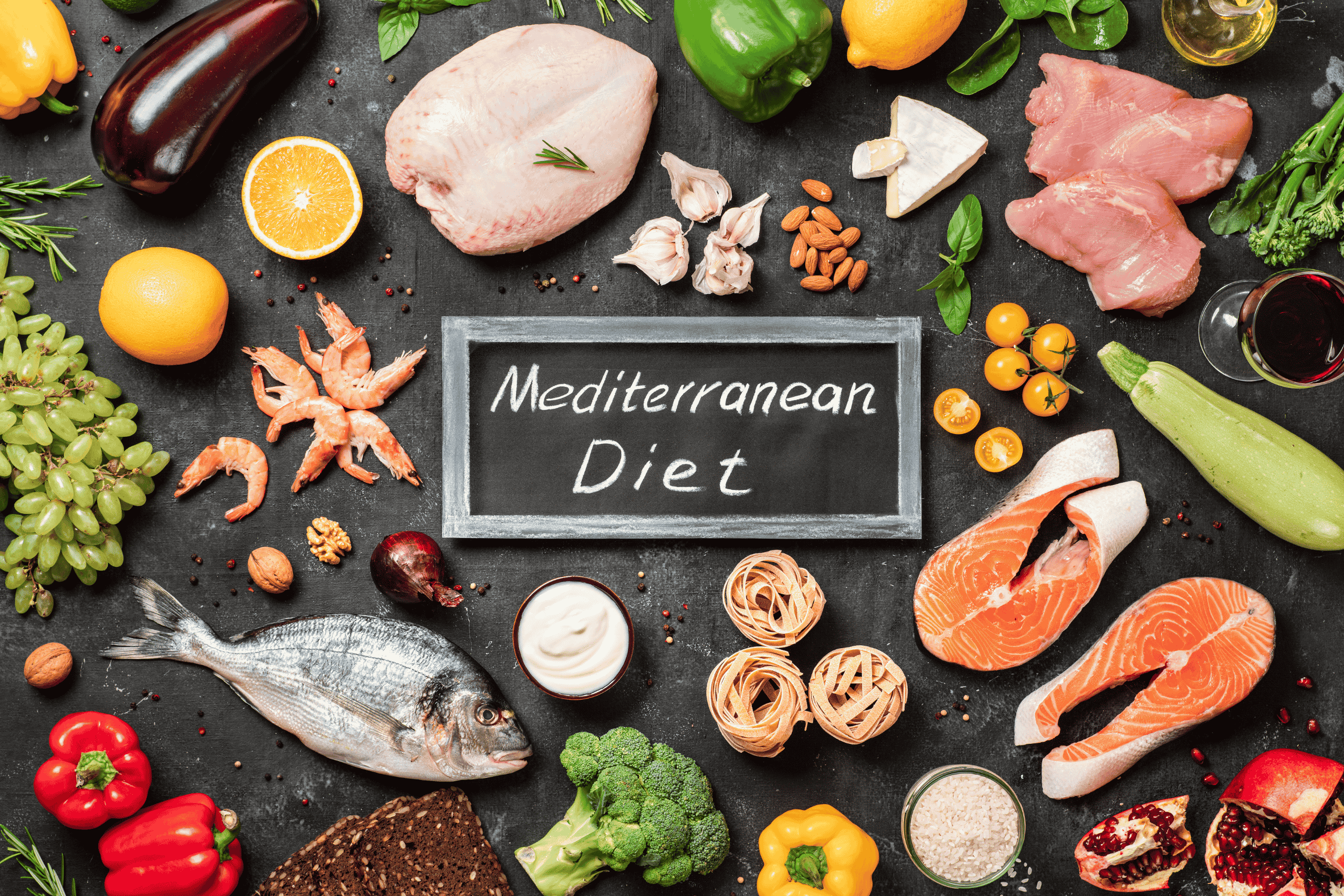
Mediterranean Diet: The #1 Healthiest Eating Plan for 2025 (Expert-Approved)
As the sun rose over the picturesque coastal town of Santorini, Maria stepped onto her balcony, inhaling the salty sea air. At 65, she radiated vitality, her skin glowing and her energy boundless. Her secret? The Mediterranean diet – a lifestyle she had embraced since childhood. Little did she know that halfway across the world, nutritionists and health experts were hailing this very diet as the pinnacle of healthy eating for 2025.
In this comprehensive guide, we’ll explore why the Mediterranean diet has claimed the top spot as the healthiest eating plan for 2025, backed by expert opinions and scientific research. We’ll delve into its principles, benefits, and how you can incorporate this life-changing diet into your daily routine.
What is the Mediterranean Diet?
The Mediterranean diet is not just a diet; it’s a lifestyle inspired by the traditional eating habits of countries bordering the Mediterranean Sea. It emphasizes:
- Abundant plant-based foods
- Healthy fats, particularly olive oil
- Moderate consumption of fish, poultry, and dairy
- Limited red meat intake
- Regular consumption of red wine (in moderation)
This eating pattern has been associated with numerous health benefits, including reduced risk of heart disease, certain cancers, and cognitive decline.
Why the Mediterranean Diet Tops the Charts in 2025
1. Heart Health Champion
The Mediterranean diet’s ability to promote cardiovascular health remains unparalleled. A landmark study published in the New England Journal of Medicine found that individuals following this diet had a 30% lower risk of major cardiovascular events compared to those on a low-fat diet.
2. Brain Booster
As we step into 2025, cognitive health is at the forefront of medical research. The Mediterranean diet has shown promising results in preserving brain function and reducing the risk of neurodegenerative diseases. A study in the journal Neurology reported that adherence to the Mediterranean diet was associated with larger brain volume and better cognitive function in older adults.
3. Weight Management Wonder
Despite not being a traditional “weight loss” diet, the Mediterranean eating plan has proven effective for weight management. Its emphasis on whole foods and healthy fats promotes satiety, making it easier to maintain a healthy weight without feeling deprived.
4. Diabetes Defense
With diabetes rates continuing to rise globally, the Mediterranean diet offers a tasty solution. Research has shown that this eating pattern can improve insulin sensitivity and reduce the risk of type 2 diabetes.
5. Cancer-Fighting Potential
While no diet can guarantee cancer prevention, the Mediterranean diet’s high antioxidant content and anti-inflammatory properties may help reduce the risk of certain cancers. A meta-analysis published in the European Journal of Cancer Prevention found that adherence to the Mediterranean diet was associated with a reduced risk of overall cancer mortality.
Key Components of the Mediterranean Diet
Olive Oil: The Liquid Gold
At the heart of the Mediterranean diet lies olive oil, a rich source of monounsaturated fats and powerful antioxidants. Replace butter and other cooking oils with extra virgin olive oil to reap its numerous health benefits.
Fruits and Vegetables: Nature’s Medicine
Aim to fill half your plate with colorful fruits and vegetables at each meal. These plant-based foods are packed with vitamins, minerals, and phytochemicals that support overall health.
Whole Grains: The Fiber Foundation
Swap refined grains for whole grains like quinoa, brown rice, and whole wheat bread. These complex carbohydrates provide sustained energy and essential nutrients.
Legumes: Protein Powerhouses
Beans, lentils, and chickpeas are staples in the Mediterranean diet. They’re excellent sources of plant-based protein, fiber, and various micronutrients.
Fish and Seafood: Omega-3 Superstars
Aim to consume fish at least twice a week. Fatty fish like salmon, sardines, and mackerel are rich in heart-healthy omega-3 fatty acids.
Nuts and Seeds: Nutrient-Dense Snacks
A handful of nuts or seeds daily can provide healthy fats, protein, and essential minerals. Opt for raw or dry-roasted varieties to avoid added oils and salt.
Moderate Red Wine Consumption
While not essential, moderate red wine consumption (up to one glass daily for women, up to two for men) is part of the traditional Mediterranean lifestyle. Red wine contains resveratrol, an antioxidant linked to various health benefits.
Implementing the Mediterranean Diet in Your Daily Life
Start with Small Changes
Transitioning to the Mediterranean diet doesn’t have to be overwhelming. Begin by making small, sustainable changes:
- Replace butter with olive oil
- Swap out refined grains for whole grains
- Incorporate more fruits and vegetables into your meals
- Reduce red meat consumption and increase fish intake
Plan Your Meals
Meal planning is key to successfully adopting the Mediterranean diet. Here’s a sample day:
- Breakfast: Greek yogurt with honey, nuts, and fresh berries
- Lunch: Whole grain pita with hummus, feta cheese, and mixed vegetables
- Dinner: Grilled fish with roasted vegetables and quinoa
- Snacks: Fresh fruit, handful of almonds, or carrot sticks with tzatziki
Embrace Cooking at Home
Cooking your meals allows you to control ingredients and portion sizes. Experiment with Mediterranean herbs and spices like oregano, basil, and rosemary to add flavor without excess salt.
Practice Mindful Eating
The Mediterranean lifestyle emphasizes enjoying meals with family and friends. Take time to savor your food, eat slowly, and appreciate the flavors and textures.
The Science Behind the Mediterranean Diet’s Success
The Mediterranean diet’s effectiveness lies in its combination of nutrient-dense foods and healthy lifestyle practices. Here’s a deeper look at the scientific reasons behind its success:
Anti-Inflammatory Properties
Chronic inflammation is linked to various diseases, including heart disease and cancer. The Mediterranean diet is rich in anti-inflammatory foods like olive oil, fatty fish, and colorful vegetables, which help combat inflammation in the body.
Balanced Macronutrient Profile
The diet provides a balanced ratio of carbohydrates, proteins, and fats, promoting stable blood sugar levels and sustained energy throughout the day.
Rich in Antioxidants
The abundance of fruits, vegetables, and olive oil in the Mediterranean diet provides a wealth of antioxidants, which protect cells from damage caused by free radicals.
Gut Health Promotion
The high fiber content from whole grains, fruits, and vegetables supports a healthy gut microbiome, which is increasingly recognized as crucial for overall health.
Mediterranean Diet vs. Other Popular Diets
While the Mediterranean diet reigns supreme in 2025, it’s worth comparing it to other popular eating plans:
Mediterranean Diet vs. Keto Diet
Unlike the high-fat, low-carb ketogenic diet, the Mediterranean diet allows for a more balanced macronutrient intake. It’s generally considered more sustainable long-term and provides a wider range of nutrients.
Mediterranean Diet vs. Paleo Diet
While both emphasize whole foods, the Mediterranean diet includes grains and legumes, which are excluded in the Paleo diet. The Mediterranean approach is typically more flexible and easier to follow.
Mediterranean Diet vs. Vegan Diet
The Mediterranean diet includes animal products like fish and dairy, unlike a vegan diet. However, both emphasize plant-based foods and can be adapted to suit individual preferences.
Potential Challenges and How to Overcome Them
Challenge: Cost of Fresh Ingredients
Solution: Buy seasonal produce, shop at local farmers’ markets, and consider frozen fruits and vegetables as cost-effective alternatives.
Challenge: Time Constraints
Solution: Batch cook grains and legumes, prepare vegetables in advance, and keep a well-stocked pantry with Mediterranean staples.
Challenge: Dining Out
Solution: Look for Mediterranean-inspired restaurants or choose dishes that align with the diet’s principles, such as grilled fish with vegetables.
The Future of the Mediterranean Diet
As we look beyond 2025, the Mediterranean diet is poised to remain a top choice for health-conscious individuals. Ongoing research continues to uncover new benefits, and the diet’s flexibility allows for adaptation to various cultural and personal preferences.
Conclusion: Embracing the Mediterranean Lifestyle
The Mediterranean diet’s reign as the healthiest eating plan in 2025 is no coincidence. Its combination of delicious, nutrient-dense foods and emphasis on lifestyle factors like social connections and physical activity make it a holistic approach to health.
As Maria in Santorini can attest, the Mediterranean diet is more than just a way of eating – it’s a celebration of life, food, and well-being. By embracing this lifestyle, you too can enjoy its numerous health benefits and potentially add years to your life.
Remember, the journey to better health is a marathon, not a sprint. Start with small changes, be patient with yourself, and enjoy the process of nourishing your body with the bountiful offerings of the Mediterranean diet.
References
- Martínez-González MA, et al. (2019). The Mediterranean diet and cardiovascular health. Circulation Research, 124(5), 779-798.
- Estruch R, et al. (2018). Primary prevention of cardiovascular disease with a Mediterranean diet supplemented with extra-virgin olive oil or nuts. New England Journal of Medicine, 378(25), e34.
- Gu Y, et al. (2015). Mediterranean diet and brain structure in a multiethnic elderly cohort. Neurology, 85(20), 1744-1751.
- Esposito K, et al. (2011). Mediterranean diet and weight loss: meta-analysis of randomized controlled trials. Metabolic Syndrome and Related Disorders, 9(1), 1-12.
- Salas-Salvadó J, et al. (2014). Prevention of diabetes with Mediterranean diets: a subgroup analysis of a randomized trial. Annals of Internal Medicine, 160(1), 1-10.
- Schwingshackl L, Hoffmann G. (2015). Adherence to Mediterranean diet and risk of cancer: an updated systematic review and meta-analysis of observational studies. Cancer Medicine, 4(12), 1933-1947.
- Casas R, et al. (2014). The immune protective effect of the Mediterranean diet against chronic low-grade inflammatory diseases. Endocrine, Metabolic & Immune Disorders Drug Targets, 14(4), 245-254.
- Trichopoulou A, et al. (2014). Definitions and potential health benefits of the Mediterranean diet: views from experts around the world. BMC Medicine, 12, 112.
- Garcia-Mantrana I, et al. (2018). Shifts on gut microbiota associated to Mediterranean diet adherence and specific dietary intakes on general adult population. Frontiers in Microbiology, 9, 890.
Disclaimer: The information provided in this article is for educational purposes only and should not be considered medical advice. Always consult with a healthcare professional or registered dietitian before making significant changes to your diet, especially if you have pre-existing health conditions or are taking medications.













